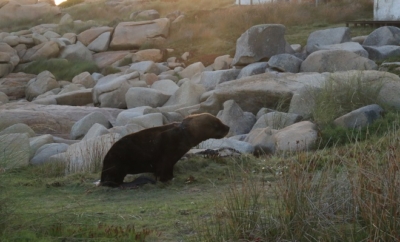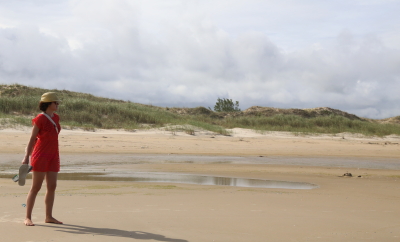
Mindfulness
Path of Mastery
We are going to discuss some psychological ideas that will help you stay on the path of mastery in your chosen undertaking. I will throw out some things for you to consider at the various stages from excited beginner to skilled master. The American way is often to set our sights on a goal and then try to get there as quickly as possible, experiencing distress and unhappiness when we meet roadblocks upon our way. ‘The master at anything was once a beginner’ reminds us that increasing your competency occurs on a continuum. The Western mentality is more likely to conceptualize things as ‘this or that’, so when you see the master you have a hard time visualizing the beginner that still exists within him.
When we see something in front of us, we often ignore all the stages it had to go through to reach its current form. But if we trace backwards we can discover the seed that sprouted and grew into the plant before us. I like using the metaphor of seeds for existential conversations because of the easy to visualize parallel observation that each specific seed can only grow into one kind of plant. A sequoia seed can only become a sequoia tree and a carrot seed can only become a carrot. When you recognize you have seeds of potential lying dormant but waiting to sprout it becomes a question of whether to plant them or keep them in the bucket. Just as important, how are you going to tend to them as they grow?
Here is some brilliant insight by Nietzsche: “We can act as the gardeners of our impulses, and-which few people know-we may cultivate the seeds of anger, pity, vanity, or excessive brooding, and make these things fecund and productive, just as we can train a beautiful plant to grow along a trellis wall…we may let nature take its own course, only trimming and embellishing a little here and there; and finally, without any knowledge or consideration, we may even allow plants to spring up in accordance with their own natural growth and limitations, and fight out their battle among themselves.”
(Nietzsche, The Dawn of Day, Pos 4687 Kindle)
Hopefully this conversation is helping you to consider the power you have as a Self to influence your human development and also consciously influence your skill development in a variety of disciplines. You can choose to raise your awareness and create the optimal conditions for growth. Or you can just float along and let life happen to you. The choice to take an active stand in what you become separates you from every other organism on the planet yet many people are unaware that they have this choice.
Choosing to pursue a new interest or continuing on with a current interest and developing it into an area of mastery is a great way for you to influence your development as a human being, and you will probably notice many benefits in all aspects of your life. I think the single most important factor when determining what you want to pursue is passion. When you are passionate about something you will be much less likely to quit when times get tough. You feel a strong pull to keep going. This is the advice that is usually given to graduate students deciding upon their research projects. You have to feel passionately drawn forward by the subject matter or else all of the tedious work and minute details will start to feel overpowering and highly unpleasant. You are unique and what draws others forward does not have to be what draws you forward. You may not have discovered something you are truly passionate about yet but it does exist and you simply have to open your mind to many more possibilities.
Beginner’s mind is an incredible thing. A passionate, dedicated beginner who is completely open to learning is a sponge. Everything is new and exciting. Possibilities seem limitless. It’s like being a baby, exploring surroundings and taking great joy in everything. Tiny improvements seem monumental because you have no frame of comparison. You are willing to stretch your boundaries and expand your horizons, devoting your entire being to the process. Human babies are meditative. They haven’t been taught differently yet and so they are 100% mindful of their surroundings and interact with their environment with awe. This is one of the reasons many people love to be around young children and babies. Their zest for life is contagious. When you become passionately involved in a new pursuit you get a chance to re-experience being a baby and get to be meditative without even having to think about it.
As I considered the arc that connects the novice to the master it dawned on me that the two states act as foils to each other and share more similarities than differences. They share passion, dedication, approaching the object of practice with wonder and respect, and a heightened, meditative state. True mastery is the fully grown plant that started with the seed of beginner’s mind.
Why do so many people fall short? Why do they begin a new interest with so much excitement only to give it up or accept mediocrity? One of the reasons is that the change in mentality from beginner to what we will broadly call ‘intermediate’ is difficult for many to handle on an unconscious level. Reality starts to diverge from expectations. The honeymoon period ends and the hard work begins. People start to recognize how long the road actually is and the level of dedication that will be necessary. Progress becomes much slower, in part because skill increases that once seemed monumental become commonplace or are glossed over in importance.
I have frequently seen this happen to foreign language learners. At first they are excited, passionate, and most importantly willing to go beyond their comfort zones, talking to everyone. They don’t really know yet how terrible they are at the language so they are not at all embarrassed about speaking. Most native speakers really enjoy talking to someone at this stage. The best parts of their personality come through and their excitement is contagious. But then for many a funny thing happens. They realize their limitations and become less likely to speak or take chances even though they have gotten much better. They notice small errors in grammar and get down on themselves. They want to speak perfectly and since they can’t yet it makes them frustrated. They hesitate and make more errors because they are not in the moment, instead thinking about what they are going to say to make sure there are no mistakes.
Mindfulness is probably your most important ally on the long path of mastery. When you raise your conscious awareness about exactly where you are in the process and exist fully in the moment you can make every stage on the continuum as exciting and rewarding as being a beginner or being a master. A simple change in mentality that makes a monumental difference is to decide your only goal is to be the best you can be where you are right now. You let go of the past and the progress you have made as well as the future and the progress you need to make. It’s great to have mastery as your goal, but recognize that the best way to get there is by inhabiting each stage of your journey fully, doing the best you can in the moment. With this mentality you will always have beginner’s mind and you will always be able to find data points that show you are improving. Instead of getting down on yourself for not having reached a far off goal you feel fulfilled for reaching the goal of dedicating your whole being to what you are doing.
When you make no comparisons or judgments your frustration and impatience will evaporate and be replaced by joy. You will realize that it takes time for a seed to grow into a plant and that the best way to help it is by mindfully tending to it. Realize that wherever you are on the continuum, you can achieve total mastery at that stage by focusing 100% of your being on the act and doing the very best you can.




